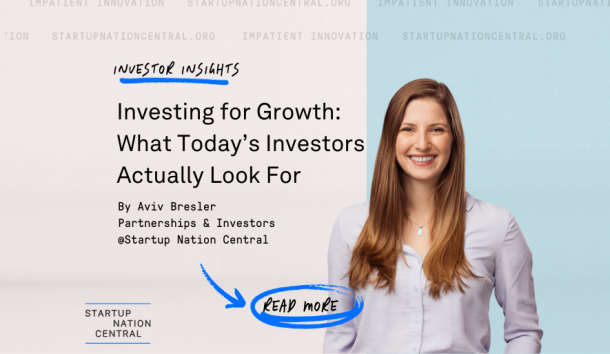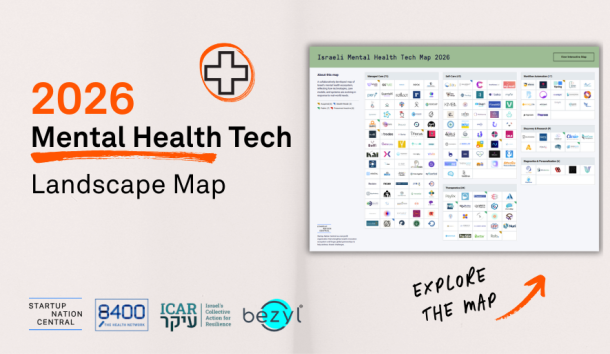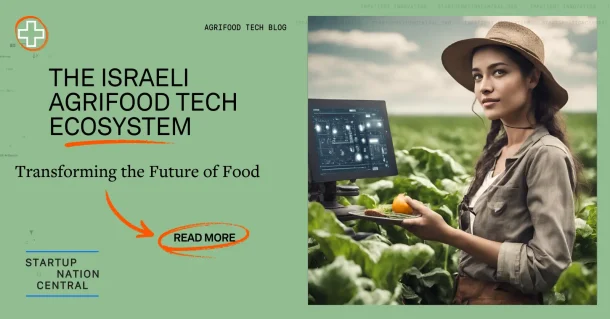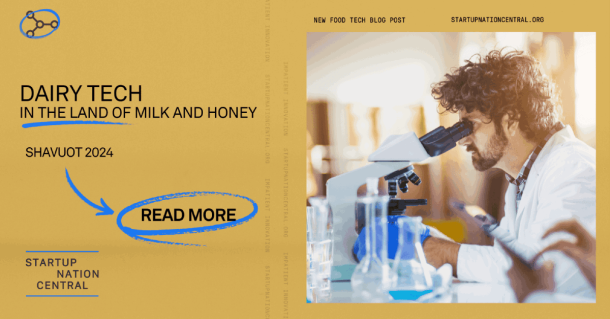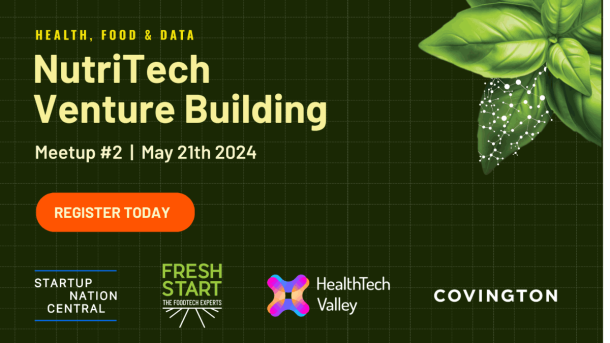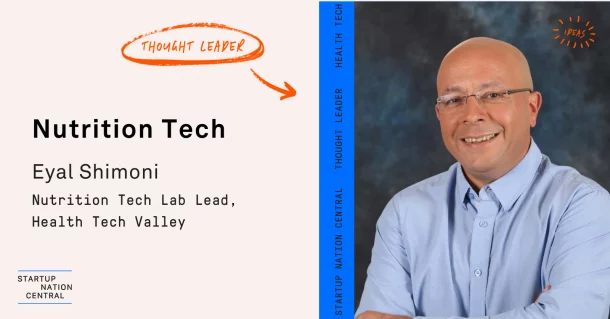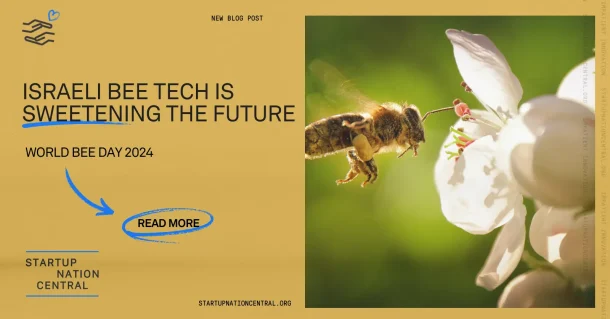By Tehilla Bar Yehuda, The Next Branch Impact Venture
*The information and opinions expressed by guest writers are their own, and do not necessarily reflect those of Start-Up Nation Central.
I’ve spent my entire career nurturing Israeli innovation in biotech and agrotech. Over the years, I kept asking myself: “will I be able to know a revolution when I see one?” – then I got into vegan tech, and the answer became very clear.
Recently, a meetup titled “The New Era of Vegan Tech” held at Start-Up Nation Central attracted some 100 tech entrepreneurs, investors, activists, members of the Knesset, industry professionals and many others. This unique meetup, organized by The Next Branch Impact Ventures and Start-Up Nation Central, was the first time this relatively new segment in the Israeli startup ecosystem was put under the spotlight.
When speaking about vegan tech, for most people, the first thought that comes to mind probably has something to do with Beyond Meat’s celebrated IPO earlier this year. But vegan tech is about much more than alternatives to burgers, nuggets, steaks and shrimp. In fact, it’s about much more than food.
Vegan tech covers a wide range of technologies that share one common outcome – replacing animals in various industry sectors, from food and agriculture to fashion, drug development and entertainment.
Between ethical consumerism and legislation
With millennials caring more than any generation before them about spending and investing their money ethically, the global shift towards plant-based food, cruelty-free products and sustainable industries is no longer a trend; it is no less than a revolution. A Faunalytics survey shows that more than half of Americans believe farm animals deserve the same consideration as pets and other creatures. A Gallup poll reveals that almost one-third of Americans believe animals should have the same rights as people. And when asked specifically about medical testing, 44% of Americans said animal experiments are morally wrong.
While ethical consumerism is one part of the revolution, another, perhaps more powerful part, is legislation. In 2013, the European Union enacted a full ban on cosmetic testing on animals, banning not just the testing of cosmetic products and ingredients on animals, but also the marketing of cosmetic products or ingredients that were tested on animals. Many other countries have since enacted similar bans, including Israel, South Korea, Taiwan, New Zealand and Australia.
Legislation in the fashion industry is moving forward as well. The ban on fur farming is spreading across the world, and California recently passed a bill that bans the manufacturing and sale of animal fur products.
Animal farming is still legal, obviously, but legislation against some of its crueler practices is ongoing. For example, the Israeli Knesset (parliament) voted to stop shipping live calves and lambs; New York City just passed a bill banning the sale of Foie Gras (which is produced by force-feeding ducks); and the ban on battery cages for egg-laying hens is rapidly spreading around the globe.
Get ready for a better world – not just for animals
As a matter of fact, eliminating animals from our menus, our wardrobes, and our labs, goes way beyond animal rights.
The negative impact of animal farming on the environment is striking. Livestock farming is responsible for 18% of global greenhouse gas emissions. It is also responsible for the majority of the deforestation around the Amazon rainforest. In addition, livestock produces 130 times more waste in a year than humans do. No wonder some of the world’s most prominent environmental activists, such as Bill Gates, Leonardo DiCaprio, and Greta Thunberg, are advocating for veganism.
Human health is another major concern. Animal-based foods are known to be causally involved in many of the most common diseases in western society, and the remarkable health benefits of a plant-based diet are nothing new. The burden of animal-based nutrition on the healthcare system is difficult to estimate, but some health insurers already calculated the bottom line, and are offering significant benefits to vegans.
Another issue is the cost of new medicines. For over 150 years, medical research relied on animals, under the hypothesis that animal models can be predictive for the human situation. This hypothesis has long been disproved, and in reality, animal models fail to properly predict the toxicity and efficacy of new drugs in 90% of cases. This number has steep financial consequences – the average cost of bringing a new drug to market is estimated at $2.6 billion.
Within the scientific and the drug development community, and even within the regulatory community, the calls for a paradigm shift are ever increasing, and new technologies such as computational biology, stem cells and organ on a chip are gradually becoming mainstream in laboratories and in the drug development industry.
The food crisis is yet another distressing concern the world is facing. In 2015, the decades-long decline in world hunger reverted, and food insecurity has since been on the rise, with 2 billion people suffering from food insecurity as of 2019.
Not the only one to blame, but a major contributor is our over-reliance on highly resource-inefficient animal farming. Transitioning to non-animal foods can be so much more efficient, that it can enable us to feed more than twice the number of people we feed today.
Will Israel help tackle these global crises and become the Vegan Tech Nation?
The influence of ethical consumerism is felt in Israel, and Tel Aviv is already recognized as the vegan capital of the world. But we can make a far more meaningful impact with technology. In fact, Israel has quietly become an important part of the global vegan tech scene. Israeli vegan tech innovation – in the fields of plant-based foods, cultivated meat, agriculture, ingredients, human-relevant science (alternatives to animal testing), consumer platforms, and other sectors – is gaining worldwide recognition.
While today, funding for startup companies beyond the seed stage comes mostly from foreign investors, local investors are starting to hear the revolution drums and also want a piece of the pie. For many of them, it is not just about financial returns, it’s about making a positive impact on many aspects of life on earth and leaving a better world for generations to come.
Tehilla Bar Yehuda is the founding partner of The Next Branch Impact Ventures.
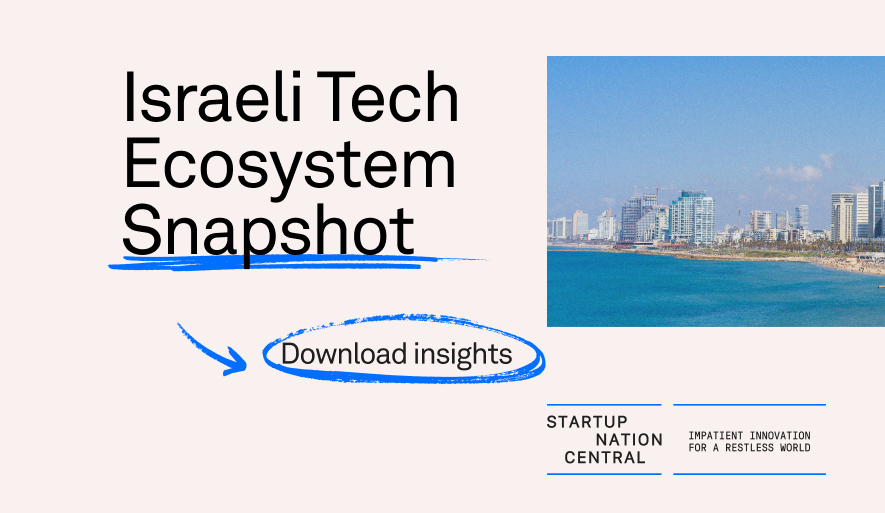
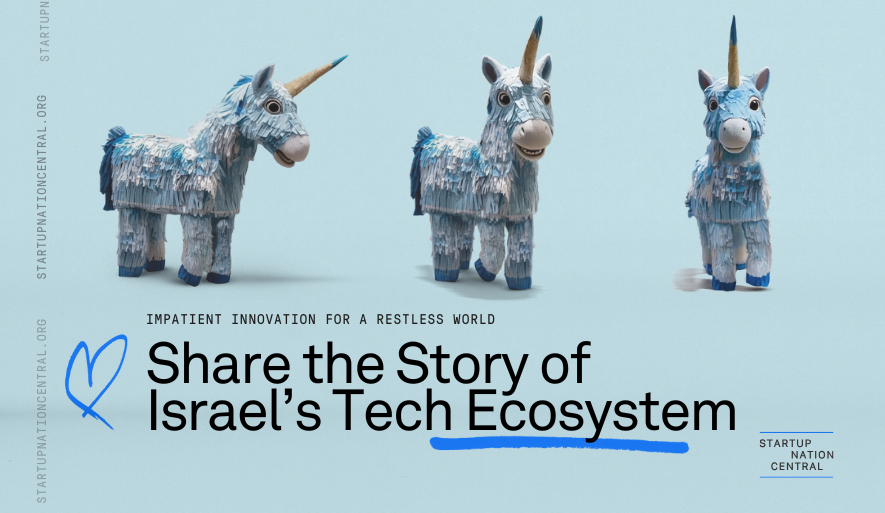
 Tech Ecosystem
Tech Ecosystem Human Capital
Human Capital Focus Sector
Focus Sector The Health Network
The Health Network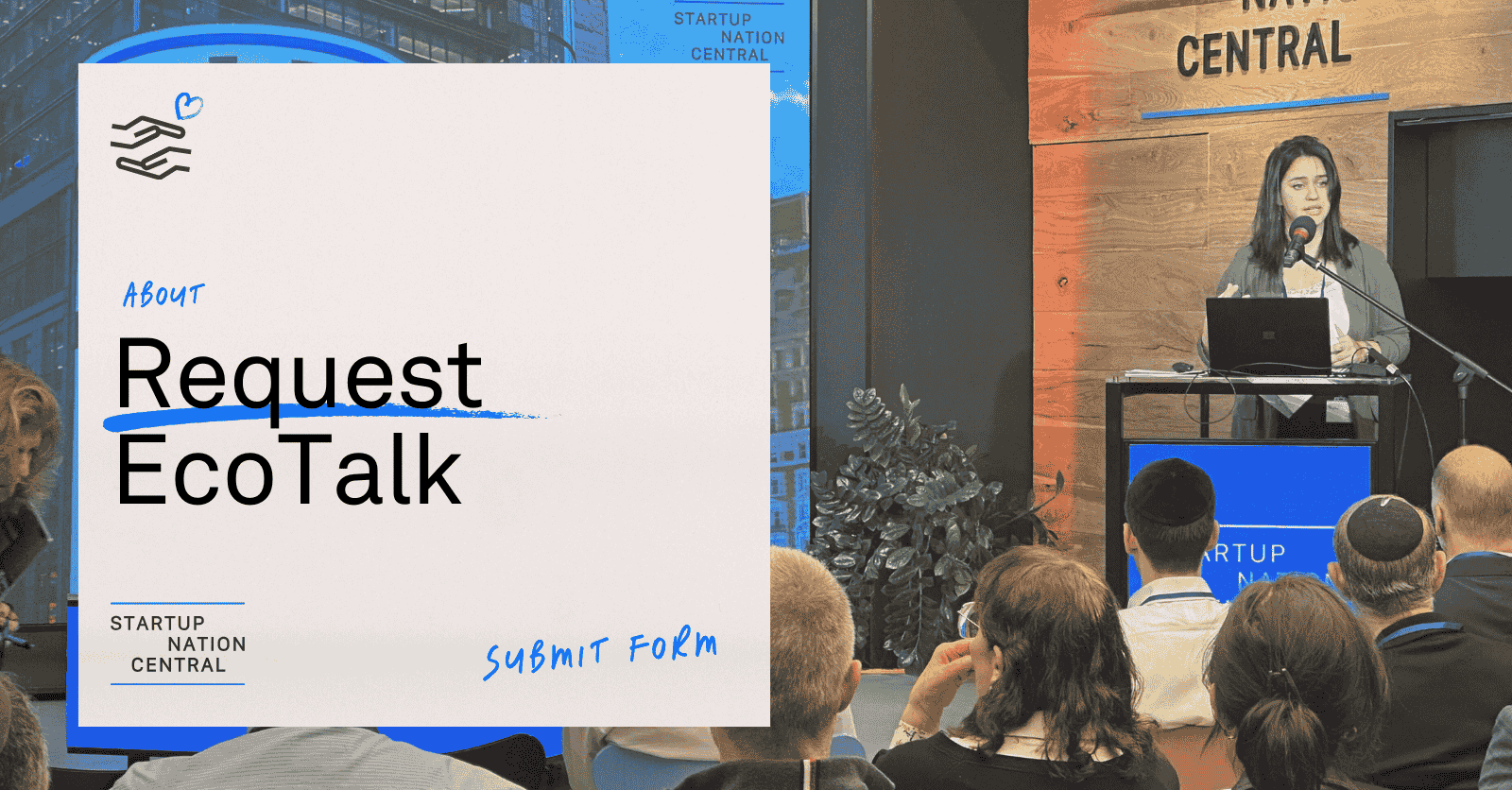
 Business Opportunities
Business Opportunities Investment in Israel
Investment in Israel Innovation Diplomacy
Innovation Diplomacy Leadership Circle
Leadership Circle



